Rhinitis
How to submit an article:
- Registered users can submit any published journal article that has a unique DOI (Digital Object Identifier) name or link to Research Hub.
- For example, you can paste the full DOI link:
https://doi.org/10.1109/5.771073or just the DOI name:10.1109/5.771073into the field above and click submit. - The person who is first to submit a valid article to Research Hub will forever be credited for it, and every article submission earns you +6 Research Points.
Related Topics
Published research studies are articles that present the findings of original research that has undergone a peer-review process and has been made publicly available in scholarly journals, books or other media.

Exploring the Relationship between Allergic Rhinitis and Constitution Based on the “Traditional Chinese Medicine Constitution Theory”
2022 Aug 24 Evidence-Based Complementary and Alternative Medicine Zhang Y, Fu J, Zhou Z, Zhang Y, Chen Y, Song A
Traditional Chinese Medicine (TCM) constitution plays an intrinsic role in allergic rhinitis (AR) pathogenesis. Additionally, treating AR by intervening and adjusting the constitution of TCM is beneficial and worthy of clinical application.
Review Article Hay Fever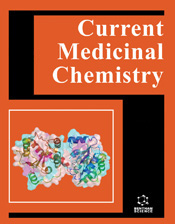
Chemistry and Bioactivity of Flos Magnoliae, A Chinese Herb for Rhinitis and Sinusitis
2022 Jul 01 Current Medicinal Chemistry Shen Y, Li C, Zhou S, Pang E, Story D, Xue C
A wide range of pharmacological actions of Flos Magnoliae (FM, Chinese name: Xin-yi) have been reported, including anti-allergy, anti-inflammation and anti-microbial activity.
Review Article Xin Yi Rhinitis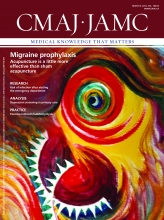
Effect of Medicine-Separated Moxibustion on Navel Combined with Mind-Regulating Acupuncture on Curative Effect and Quality of Life in Patients with Allergic Rhinitis
2022 May 31 Contrast Media & Molecular Imaging Ma T, Zhang H, Wang R
It shows that the umbilical method of medicine-separated moxibustion combined with mind-regulating acupuncture when treating allergic rhinitis (AR) has the advantages of definite short-term effect, long-term effect, safe and simple operation, and no adverse reactions, which is worthy of clinical application.
Review Article Hay Fever Moxibustion Acupuncture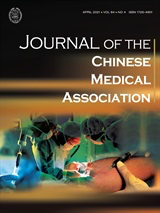
A Houttuynia cordata–based Chinese herbal formula improved symptoms of allergic rhinitis during the COVID-19 pandemic
2022 Apr 14 Journal of the Chinese Medical Association Chang KW, Lin TY, Fu SL, Ping YH, Chen F, Kung YY
Zheng-Yi-Fang (ZYF) has potential effects to relieve nasal symptoms for allergic rhinitis (AR) during the COVID-19 pandemic.
Randomised Controlled Trial Hay Fever Yu Xing Cao Zheng Yi Fang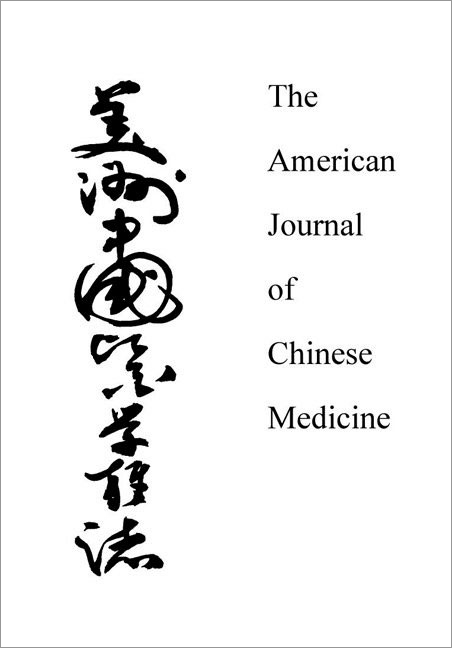
Effect of Acupuncture in the Treatment of Seasonal Allergic Rhinitis: A Randomized Controlled Clinical Trial
2022 Jan The American Journal of Chinese Medicine Xue CC, English R, Zhang JJ, Da Costa C, Li CG
Randomised Controlled Trial Hay FeverAcupuncture is a safe and effective treatment for Seasonal Allergic Rhinitis, significantly improving symptoms without needing relief medication or causing side effects.
Research insights are moderated by the Research Hub team and offer an at-a-glance overview of interesting research findings.

2022 The American Journal of Chinese Medicine
Acupuncture is a safe and effective treatment for Seasonal Allergic Rhinitis, significantly improving symptoms without needing relief medication or causing side effects.
Randomised Controlled Trial Hay Fever
Effect of Acupuncture in the Treatment of Seasonal Allergic Rhinitis: A Randomized Controlled Clinical Trial
Xue CC, English R, Zhang JJ, Da Costa C, Li CG
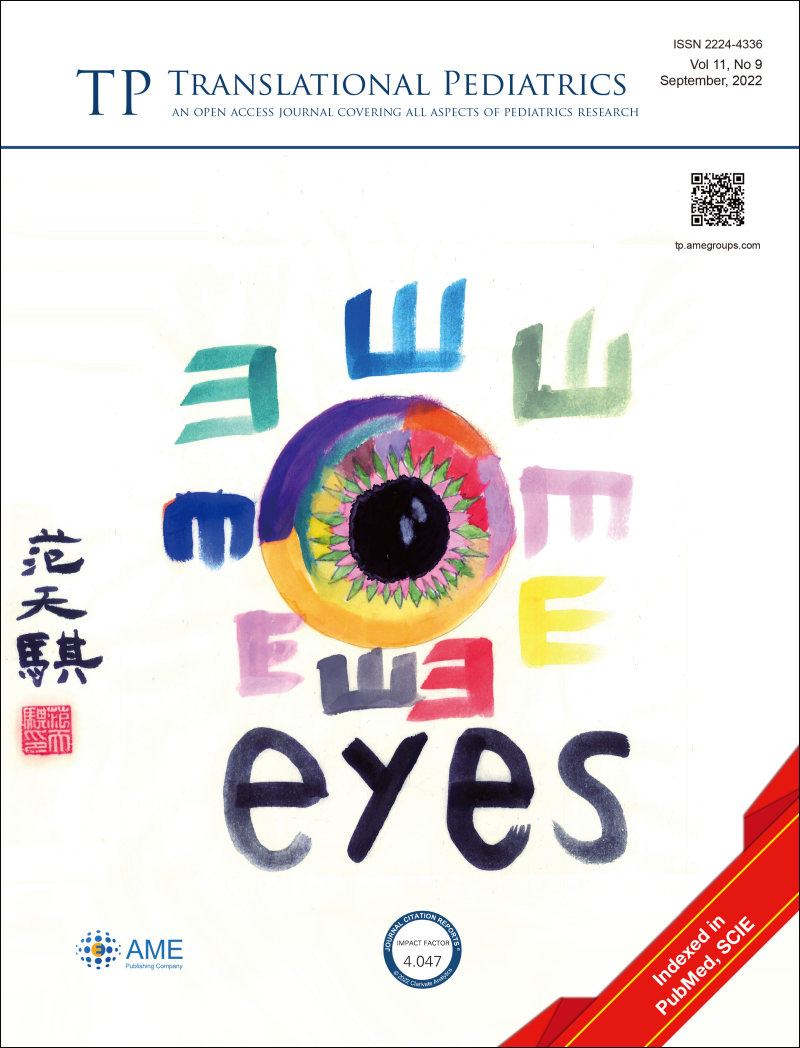
2021 Translational Pediatrics
Allergic rhinitis in children, according to traditional Chinese medicine, is interrelated with the functionality of lungs, spleen, and kidney and can be treated with combined Western and Chinese herbal medicines.
Review Article Children's Health Hay Fever
Current status of Chinese herbal medicine to treat allergic rhinitis in children: from the perspective of Western medicine—a narrative review
Liang J, Gu Q

2021 Medicine
The use of Yu Ping Feng San for pediatric allergic rhinitis appears relatively safe compared to Western medical therapy yet its routine use remains unsupported.
Systematic Review Children's Health Hay Fever Yu Ping Feng San
Yu ping feng san for pediatric allergic rhinitis
Liao Y, Zhong J, Liu S, Dai M, Liu Y, Li X, et al.

2021 Evidence-Based Complementary and Alternative Medicine
Gui Zhi Decoction and associated formulas significantly improve the effectiveness of allergic rhinitis treatments when used alone or combined with Western medicine.
Systematic Review Gui Zhi Gui Zhi Tang Hay Fever
Efficacy and Safety of Guizhi Decoction AssociatedFormulas for Allergic Rhinitis: A Systematic Review
Yang S, Fu Q, Deng H, Wu J, Zhang Q, Wang L, et al.
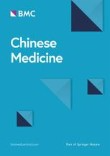
2020 Chinese Medicine
Our findings revealed that all acupuncture methods are effective and safe for allergic rhinitis. Acupuncture plus conventional medicine are potentially the most effective treatment strategies for allergic rhinitis.
Systematic Review Hay Fever
Acupuncture methods for allergic rhinitis: a systematic review and bayesian meta-analysis of randomized controlled trials.
Yin, Z., Geng, G., Xu, G. et al.
Review Articles
Review articles summarise and critically evaluate the current state of research on a specific topic or field by synthesising multiple primary research studies.

Exploring the Relationship between Allergic Rhinitis and Constitution Based on the “Traditional Chinese Medicine Constitution Theory”
2022 Aug 24 Evidence-Based Complementary and Alternative Medicine Zhang Y, Fu J, Zhou Z, Zhang Y, Chen Y, Song A
Traditional Chinese Medicine (TCM) constitution plays an intrinsic role in allergic rhinitis (AR) pathogenesis. Additionally, treating AR by intervening and adjusting the constitution of TCM is beneficial and worthy of clinical application.
Review Article Hay Fever
Chemistry and Bioactivity of Flos Magnoliae, A Chinese Herb for Rhinitis and Sinusitis
2022 Jul 01 Current Medicinal Chemistry Shen Y, Li C, Zhou S, Pang E, Story D, Xue C
A wide range of pharmacological actions of Flos Magnoliae (FM, Chinese name: Xin-yi) have been reported, including anti-allergy, anti-inflammation and anti-microbial activity.
Review Article Xin Yi Rhinitis
Effect of Medicine-Separated Moxibustion on Navel Combined with Mind-Regulating Acupuncture on Curative Effect and Quality of Life in Patients with Allergic Rhinitis
2022 May 31 Contrast Media & Molecular Imaging Ma T, Zhang H, Wang R
It shows that the umbilical method of medicine-separated moxibustion combined with mind-regulating acupuncture when treating allergic rhinitis (AR) has the advantages of definite short-term effect, long-term effect, safe and simple operation, and no adverse reactions, which is worthy of clinical application.
Review Article Hay Fever Moxibustion Acupuncture
Current status of Chinese herbal medicine to treat allergic rhinitis in children: from the perspective of Western medicine—a narrative review
2021 Dec Translational Pediatrics Liang J, Gu Q
Review Article Hay Fever Children's HealthAllergic rhinitis in children, according to traditional Chinese medicine, is interrelated with the functionality of lungs, spleen, and kidney and can be treated with combined Western and Chinese herbal medicines.

Yu ping feng san for pediatric allergic rhinitis
2021 Apr 02 Medicine Liao Y, Zhong J, Liu S, Dai M, Liu Y, Li X, et al.
Systematic Review Meta-Analysis Children's Health Yu Ping Feng San Hay FeverThe use of Yu Ping Feng San for pediatric allergic rhinitis appears relatively safe compared to Western medical therapy yet its routine use remains unsupported.
Clinical Trials
Clinical trials are research studies that involve people and are conducted to evaluate the safety and efficacy of new treatments or interventions, such as drugs, medical devices, or behavioural therapies.

A Houttuynia cordata–based Chinese herbal formula improved symptoms of allergic rhinitis during the COVID-19 pandemic
2022 Apr 14 Journal of the Chinese Medical Association Chang KW, Lin TY, Fu SL, Ping YH, Chen F, Kung YY
Zheng-Yi-Fang (ZYF) has potential effects to relieve nasal symptoms for allergic rhinitis (AR) during the COVID-19 pandemic.
Randomised Controlled Trial Hay Fever Yu Xing Cao Zheng Yi Fang
Effect of Acupuncture in the Treatment of Seasonal Allergic Rhinitis: A Randomized Controlled Clinical Trial
2022 Jan The American Journal of Chinese Medicine Xue CC, English R, Zhang JJ, Da Costa C, Li CG
Randomised Controlled Trial Hay FeverAcupuncture is a safe and effective treatment for Seasonal Allergic Rhinitis, significantly improving symptoms without needing relief medication or causing side effects.

Feasibility of self-administered acupressure for allergic rhinitis: a pilot randomized controlled trial and lessons learnt for future studies
2021 Nov 12 Acupuncture in Medicine Liang Y, Lenon GB, Li M, Yang AWH
Acupressure is feasible and appears to be safe for self-administration by AR sufferers. Experience from this pilot study has guided minor amendments to the protocol. A large-scale randomized controlled trial is warranted to further investigate the efficacy and safety of self-administered acupressure for the management of AR.
Randomised Controlled Trial Hay Fever
Acupuncture and herbal moxibustion for the treatment of ‘BiQiu’ (allergic rhinitis symptoms) in a Hong Kong Chinese medicine clinic: a randomized controlled trial
2019 Nov 08 Chinese Medicine Yung TY, Zhang H, Tang LC, Zhang L, Law CO, Tam WM, et al.
This study supports that acupuncture could help relieve allergic rhinitis (AR) symptoms, but no evidence on additional treatment effect of herbal moxibustion was found.
Randomised Controlled Trial Acupuncture Hay Fever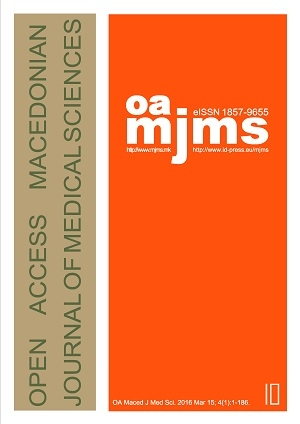
Assessment of Allergic Rhinitis among Children after Low-Level Laser Therapy
2019 Jul 07 Open Access Macedonian Journal of Medical Sciences Moustafa Y, El Nady HG, Saber MM, Dabbous OA, Kamel TB, Abel-Wahhab KG, et al.
Laser acupuncture is a reliable, painless and non-invasive successful technique, which may be used as a complementary treatment for pediatric allergic rhinitis.
Randomised Controlled Trial Hay Fever Low-Level Laser Therapy Children's Health Laser AcupunctureStudy Protocols
Published study protocols are detailed plans that outline the objectives, methodology, statistical analyses, and organisation of a research study that have been made publicly available for others to review and use as a reference.
Presentation Slides

Randomised Controlled Trial
Acupuncture is a safe and effective treatment for Seasonal Allergic Rhinitis, significantly improving symptoms without needing relief medication or causing side effects.
Xue CC, English R, Zhang JJ, Da Costa C, Li CG

Review Article
Allergic rhinitis in children, according to traditional Chinese medicine, is interrelated with the functionality of lungs, spleen, and kidney and can be treated with combined Western and Chinese herbal medicines.
Liang J, Gu Q

Systematic Review
The use of Yu Ping Feng San for pediatric allergic rhinitis appears relatively safe compared to Western medical therapy yet its routine use remains unsupported.
Liao Y, Zhong J, Liu S, Dai M, Liu Y, Li X, Yang Y, Zhang D, Lai D, Lu T, Zhang Q, Zhao Y

Systematic Review
Gui Zhi Decoction and associated formulas significantly improve the effectiveness of allergic rhinitis treatments when used alone or combined with Western medicine.
Yang S, Fu Q, Deng H, Wu J, Zhang Q, Wang L, Yao X

Systematic Review
Our findings revealed that all acupuncture methods are effective and safe for allergic rhinitis. Acupuncture plus conventional medicine are potentially the most effective treatment strategies for allergic rhinitis.
Yin, Z., Geng, G., Xu, G. et al.
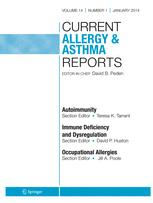
Review Article
Traditional Chinese Medicine, specifically acupuncture, demonstrates promising effects in managing allergic diseases like allergic rhinitis and asthma.
Chan HHL, Ng T

Randomised Controlled Trial
Acupuncture appeared to significantly reduce the number of days of antihistamine use while improving rhinitis-specific quality of life and seasonal allergic rhinitis symptoms
Adam D, Grabenhenrich L, Ortiz M, Binting S, Reinhold T, Brinkhaus B
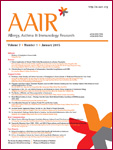
Systematic Review
Chinese herbal medicine tends to improve the quality of life of patients suffering from allergic rhinitis.
Zhang X, Lan F, Zhang Y, Zhang L

Systematic Review
Yu Ping Feng San, a Chinese herbal medicine, combined with pharmacotherapy could be effective for treating allergic rhinitis in adults.
Luo Q, Zhang CS, Yang L, Zhang AL, Guo X, Xue CC, Lu C
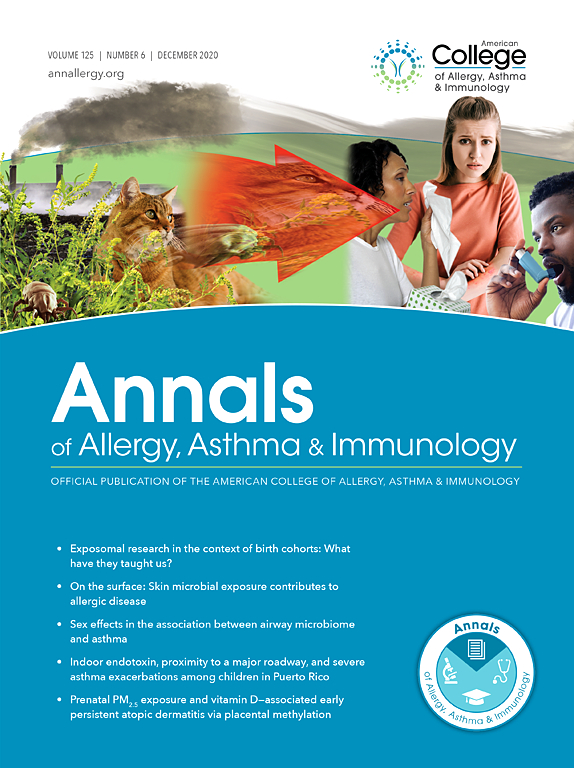
Randomised Controlled Trial
Four weeks of acupuncture treatment is a safe and effective option for clinical management of seasonal allergic rhinitis in the Melbourne area for patients' symptom relief and quality of life improvement.
Xue CC, Zhang AL, Zhang CS, DaCosta C, Story DF, Thien FC
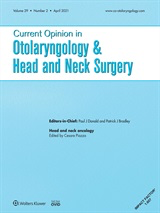
Systematic Review
There are high-quality randomized controlled trials that demonstrate efficacy and effectiveness for acupuncture in the treatment of both seasonal and perennial allergic rhinitis.
Malcolm B. Tawa, William D. Reddyb, Folashade S. Omolec, and Michael D. Seidmand
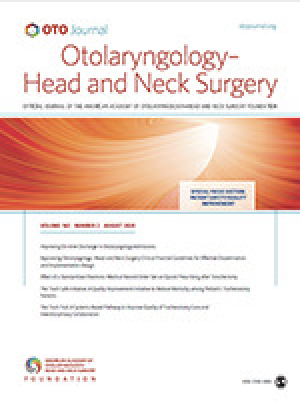
Practice Guideline
Clinicians may offer acupuncture, or refer to a clinician who can offer acupuncture, for patients with allergic rhinitis who are interested in nonpharmacologic therapy.
Seidman MD et al.

Meta-Analysis
Our meta-analysis suggests that that acupuncture could be a safe and valid treatment option for allergic rhinitis patients.
Feng S, Han M, Fan Y, Yang G, Liao Z, Liao W, Li H
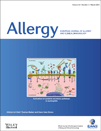
Randomised Controlled Trial
Acupuncture was found to be a more effective and safe treatment for allergic rhinitis than sham acupuncture or no treatment.
Choi SM, Park JE, Li SS, Jung H, Zi M, Kim TH, Jung S, Kim A, Shin M, Sul JU, Hong Z, Jiping Z, Lee S, Liyun H, Kang K, Baoyan L
Executive Summary
Write an executive summary in the form of a blog article on the topic of "Research into Chinese medicine treatment for Rhinitis" summarising the research below and using language that can be easily understood by patients and avoiding medical jargon using a professional and caring tone of voice.
Write an executive summary in the form of a blog article on the topic of "Researched Chinese medicine treatments for Rhinitis" summarising the research below in an objective and easy to understand way, and using language that can be easily understood by patients. Group the article into Chinese medicine treatments first, followed by nutrition and other treatments. Avoid using medical jargon and use a professional and caring tone of voice.
Write me a concise but easy to understand executive summary on the topic of "Chinese medicine treatments for Rhinitis" based on the following research that I will give you. Your summary should be 2 paragraphs long in Australian English spelling and include references to the studies.
A Randomised Controlled Trial published in 2022 in the journal The American Journal of Chinese Medicine found that Acupuncture is a safe and effective treatment for Seasonal Allergic Rhinitis, significantly improving symptoms without needing relief medication or causing side effects. The study was a two-phase, single-blind, crossover clinical trial where randomly assigned subjects, split into two groups, were treated with either real or sham acupuncture. All participants received treatment thrice a week for four weeks straight before being flipped onto the other form of treatment for another four uninterrupted weeks without a washout period. The real acupuncture treatment plan was guided by Chinese Medicine Theory. The subjects' responses were measured at various stages - before, during, and after the trials. In the study, significant improvement was marked in the subjective symptom scores, both nasal and non-nasal, between the group that received the genuine acupuncture and the sham treatment. It was noteworthy, however, that no marked differences were found in the relief medication scores between the two groups. There were also no recorded side effects from either the real or sham acupuncture groups. This suggests that acupuncture proves to be a safe and effective alternative for managing Seasonal Allergic Rhinitis.
A Review Article published in 2021 in the journal Translational Pediatrics found that Allergic rhinitis in children, according to traditional Chinese medicine, is interrelated with the functionality of lungs, spleen, and kidney and can be treated with combined Western and Chinese herbal medicines. The methodology of this study was based on a review of both traditional Chinese and Western medical theories and practices. Chinese theory postulates that BiQiu, or allergic rhinitis in children, is primarily related to a congenital deficiency in vital qi, dysfunction of the lungs inhibiting nose orifices, and a deficiency of spleen and kidney leading to lung qi deficiency. The review looked into herbal monomers and compounds of Chinese herbal medicines as potential treatments for allergic rhinitis, while also considering the impact of external factors like the cold and inadequate diet. The review highlighted some of the effects and shortcomings of Chinese herbal medicines used alongside Western medicines for treating allergic rhinitis. Particularly, it focussed on how the unique perceptions of life science of the human body from both Eastern and Western cultures can be brought together for a comprehensive method of treatment. The study also outlined future trends of research to enhance this combined treatment approach.
A Systematic Review published in 2021 in the journal Medicine found that The use of Yu Ping Feng San for pediatric allergic rhinitis appears relatively safe compared to Western medical therapy yet its routine use remains unsupported. The study undertakes a systematic search across multiple databases, including PubMed, the Excerpta Medical Database, Cochrane library and more, for randomized controlled trials (RCTs) concerning the use of YPFS for pediatric allergic rhinitis. Extracted results were subjected to stringent bias-risk analysis based on the Cochrane Handbook. A meta-analysis was then implemented using RevMan 5.3 software, and the Grading of Recommendations Assessment, Development and Evaluation methodology was applied to check the quality of evidence for every outcome. The study pooled 10 RCTs covering 1,069 participants aged between 3-15 years for initial inclusion. After certain exclusions, it was determined from the remaining eight RCTs that the overall efficacy did not show any notable advantage for the test group. In addition, inspections into variation of serum immunoglobulin levels showed no statistical significance. However, the safety of YPFS displayed better results, demonstrating a relatively safer approach with lower recurrence rates compared to Western medical therapy.
A Systematic Review published in 2021 in the journal Evidence-Based Complementary and Alternative Medicine found that Gui Zhi Decoction and associated formulas significantly improve the effectiveness of allergic rhinitis treatments when used alone or combined with Western medicine. The study aimed to evaluate the efficacy of Guizhi Decoction and associated formulas for treating allergic rhinitis. It included a comprehensive search of seven online databases for studies published until February 23, 2020. Each selected study's quality was assessed using the Cochrane Collaboration risk of bias tool. The research used systematic reviews based on the Cochrane systematic review method, facilitated by RevMan 5.3 Software. Interventions in the study varied from using Guizhi Decoction and associated formulas alone to combining them with Western medicine, acupoint-based therapy, Chinese patent medicine, and placebo control. Data from 23 trials involving 2281 participants were collected and systematically analysed. The results showed that Guizhi Decoction and associated formulas, either alone or in conjunction with Western medicine or acupoint-based therapies, exhibited higher efficacy compared to Western medicine alone. The study also reported that adding nasal traditional Chinese medicine fumigation therapy to the Guizhi Decoction formulations could further improve treatment effectiveness. Adverse events were primarily mild and primarily associated with the control groups that used Western medicine alone, requiring no specific medical intervention.
A Systematic Review published in 2020 in the journal Chinese Medicine found that Our findings revealed that all acupuncture methods are effective and safe for allergic rhinitis. Acupuncture plus conventional medicine are potentially the most effective treatment strategies for allergic rhinitis. Our findings revealed that all acupuncture methods are effective and safe for allergic rhinitis. Moreover, either moxibustion or manual acupuncture plus conventional medicine are potentially the most effective treatment strategies for allergic rhinitis. Based on these findings, it is evident that acupuncture therapy is not inferior to pharmacologic therapy. Therefore, for allergic rhinitis patients who are either unresponsive to conventional medicine or are intolerant to adverse events, acupuncture therapy should be administered. However, the quality of these included trials was mainly ranked as moderate quality, we recommend additional well-designed RCTs with larger sample sizes to validate these findings.
A Review Article published in 2020 in the journal Current Allergy and Asthma Reports found that Traditional Chinese Medicine, specifically acupuncture, demonstrates promising effects in managing allergic diseases like allergic rhinitis and asthma. The methodology for this paper involved an extensive review of recent publications, predominantly those presenting randomized controlled trials, that assess the use of Traditional Chinese Medicine (TCM) in treating allergies. The focus was on the two most popular treatment modalities in TCM, Chinese herbal medicine and acupuncture. Publications detailing the mechanisms by which TCM impacts allergic diseases, as well as literature in Chinese, were also examined. The analysis of the results showed an increasing trend of using TCM, specifically Chinese herbal medicine, to manage allergic diseases. However, literature evidence was found lacking to conclusively establish its effectiveness. On the other hand, acupuncture showed more definitive evidence of its utility, especially when treating allergic rhinitis and asthma, either as a standalone intervention or alongside conventional western medication. Its effectiveness in treating atopic eczema and urticaria was less clear, nonetheless, it's recommended to be incorporated into the treatment of specific allergic diseases on a personalized basis.
A Randomised Controlled Trial published in 2018 in the journal Acupuncture in Medicine found that Acupuncture appeared to significantly reduce the number of days of antihistamine use while improving rhinitis-specific quality of life and seasonal allergic rhinitis symptoms The data from 414 patients were analysed. The acupuncture group used antihistamines significantly less often compared with the other groups (acupuncture vs sham acupuncture: mean difference −4.49 days, p=0.01; acupuncture vs RM: mean difference −9.15 days, p<0.001). Approximately 38% of the acupuncture group did not use any antihistamine in contrast to only 16% in the RM group. The pre-post comparison suggested that the acupuncture patients did not need to increase the days of antihistamine use to alleviate their symptoms, unlike the other groups. Acupuncture appeared to significantly reduce the number of days of antihistamine use while improving RQoL and SAR symptoms; it can therefore be considered a valuable, additional treatment option for patients with SAR.
A Systematic Review published in 2018 in the journal Allergy, Asthma & Immunology Research found that Chinese herbal medicine tends to improve the quality of life of patients suffering from allergic rhinitis. The researchers examined randomized clinical trials (RCTs) to understand the effect of Chinese herbal medicine (CHM) on allergic rhinitis (AR). They conducted a comprehensive search of PubMed, Medline, and Springer databases till March 2017, specifically looking for trials that compared CHM's effectiveness to a placebo in treating AR. They evaluated total nasal symptoms and quality of life, also performing sensitivity and subgroup analyses to further explore the source of heterogeneity in the trial results. The study included eleven RCTs in the meta-analysis, which revealed significant heterogeneity among them. This means that the data from these individual studies varied a lot, prompting the researchers to use a random effects model to consolidate the data. While CHM did not make a notable difference in alleviating symptoms like an itchy nose, sneezing, or total nasal symptoms, it did result in a noticeable improvement in the overall quality of life of the AR patients.
A Systematic Review published in 2017 in the journal BMC Complementary Medicine and Therapies found that Yu Ping Feng San, a Chinese herbal medicine, combined with pharmacotherapy could be effective for treating allergic rhinitis in adults. The paper evaluates Chinese herbal medicine, YPFS, for treating allergic rhinitis in adults by conducting a meta-analysis and subgroup meta-analyses of several randomized controlled trials (RCTs). Seven databases were searched from their inceptions to September 2017 where RCTs evaluating YPFS for adult allergic rhinitis were included. The Cochrane risk of bias tool was used to assess the methodological quality of these studies and meta-analysis and subgroup meta-analyses were conducted to evaluate the effectiveness of YPFS. Based on the results, YPFS when used in combination with pharmacotherapy seemed to be more effective than using pharmacotherapy alone for treating allergic rhinitis. The paper highlighted an alleviation of four individual nasal symptom scores post YPFS combination treatment; these being itchy nose, sneezing, blocked nose, and runny nose. Furthermore, it was found that the YPFS combination treatment was more beneficial when it was used for more than three weeks. The paper also mentions that YPFS was safe and well-tolerated for treating adult allergic rhinitis. However, it did not seem to be superior to the second-generation antihistamine.
A Randomised Controlled Trial published in 2015 in the journal Annals of Allergy, Asthma & Immunology found that Four weeks of acupuncture treatment is a safe and effective option for clinical management of seasonal allergic rhinitis in the Melbourne area for patients' symptom relief and quality of life improvement. A total of 175 participants were included in this trial. RA was significantly better than SA for decreasing SAR symptom severity (sneezing, mean difference −0.28, 95% confidence interval −0.51 to −0.05; itchiness of ears and palate, mean difference −0.40, 95% confidence interval −0.69 to −0.11) at the end of treatment and improving participants' QoL at the end of the treatment and follow-up phases. Furthermore, the acupuncture treatment was safe and well tolerated.
A Systematic Review published in 2015 in the journal Current Opinion in Otolaryngology & Head and Neck Surgery found that There are high-quality randomized controlled trials that demonstrate efficacy and effectiveness for acupuncture in the treatment of both seasonal and perennial allergic rhinitis. Our review of the medical literature from January 2013 through December 2014 revealed that there is research demonstrating efficacy and effectiveness for acupuncture in the treatment of allergic rhinitis, as well as improvement of quality of life and quality-adjusted life-years.
A Practice Guideline published in 2015 in the journal Otolaryngology-Head and Neck Surgery found that Clinicians may offer acupuncture, or refer to a clinician who can offer acupuncture, for patients with allergic rhinitis who are interested in nonpharmacologic therapy. The primary purpose of this guideline is to address quality improvement opportunities for all clinicians, in any setting, who are likely to manage patients with allergic rhinitis, as well as to optimize patient care, promote effective diagnosis and therapy, and reduce harmful or unnecessary variations in care. The guideline is intended to be applicable for both pediatric and adult patients with allergic rhinitis. Children under the age of 2 years were excluded in this clinical practice guideline because rhinitis in this population may be different than in older patients and is not informed by the same evidence base.
A Meta-Analysis published in 2015 in the journal American Journal of Rhinology & Allergy found that Our meta-analysis suggests that that acupuncture could be a safe and valid treatment option for allergic rhinitis patients. Because acupuncture may modulate the immune system, it has been proposed as a useful treatment for patients with allergic rhinitis (AR). Here, we assessed the evidence for the clinical efficacy of acupuncture for the management of AR patients by performing a systematic review and meta-analysis of the published literatures. Thirteen full papers that met our inclusion criteria were included, and a total of 2365 participants, including 1126 as treatment group and 1239 as control group, were enrolled. Compared with control group, acupuncture treatment group exerted a significant reduction in nasal symptom scores (weighted mean difference [WMD]: -4.42, 95% confidence interval [CI]: -8.42 to -0.43, p = 0.03), medication scores (WMD: 1.39, 95% CI: -2.18 to -0.61, p = 0005), and serum IgE (WMD: -75.00, 95% CI: -91.17 to -58.83, p < 0.00001). Data relating to Rhinitis Quality of Life Questionnaire (RQLQ) and 36-Item Short-Form (SF-36) component score in included studies were analyzed, which ultimately point to the efficacy of acupuncture treatment in improving quality of life in AR patients. No fatal events were reported in any of the included studies, and no serious systemic reaction, which needed treatment in the hospital, was related to the acupuncture treatment.
A Randomised Controlled Trial published in 2012 in the journal Allergy found that Acupuncture was found to be a more effective and safe treatment for allergic rhinitis than sham acupuncture or no treatment. Methodology: The study was a multicenter, parallel-controlled experiment. Three groups of randomized participants either received active acupuncture, sham acupuncture (minimal acupuncture at nonacupuncture points), or were placed on a waitlist (no acupuncture treatment). The treatments were given three times a week over a four-week period. Discussion of Results: The active acupuncture group showed a marked reduction in allergic rhinitis symptoms compared to the other two groups. Despite this, both acupuncture types still showed significant improvements in symptoms when compared to their initial condition, confirming the efficacy of acupuncture in treating allergic rhinitis.
Moderation Tools
Topic
Sign In
Users not signed in are limited to viewing the 5 most recent items of content.